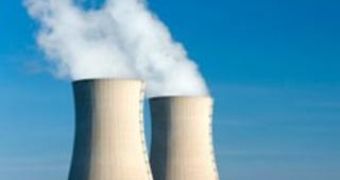While the Japanese government is busy preparing the country's transition from nuclear power to more environmentally-friendly energy sources, high officials in South Korea are looking into the possibility of spending significant amounts of money on brand new, fully functional nuclear reactors.
Thus, it seems that only a few days back this state's Ministry of Knowledge and Economy made it public news that several locations had been singled out as potential sites for the building of nuclear plants.
According to Greenpeace, South Korea is presently waiting for several EIAs (Environmental Impact Assessments) and geological tests to be complemented.
Once these are done with, it is expected that the construction plans will be approved and work on these new reactors will soon begin.
The aforementioned organization explains that, by pushing forward with its plans to develop this particular branch on the energy industry, South Korea does more than simply threaten the wellbeing of the environment.
More precisely, Greenpeace states that these soon-to-become-a-reality nuclear reactors are to represent a constant threat to the health of those presently living in South Korea, not to mention the fact that the money used to build these plants will most likely come from public cash.
For the time being, as many as 23 nuclear reactors are up and running in South Korea.
However, should the government have its way, this number could increase to 39 in a relatively short time span. More precisely, it seems that these new reactors are to begin generating electricity as early as 2030.
Once this happens, 59% of the state's overall electricity demands will be met with the help of nuclear power.
As far as Greenpeace is concerned, South Korea should take the time and reflect on how and why Japan decided to quit nuclear power and push towards the large-scale use of other energy sources.
More so since South Korea's pursuing nuclear energy whilst most other nations are trying to let go of it makes this state “the odd one out” energy-wise.

 14 DAY TRIAL //
14 DAY TRIAL //